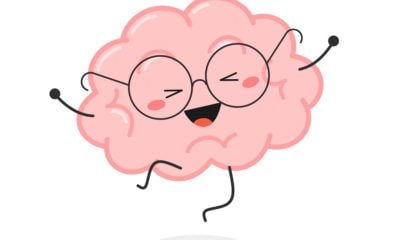Why Being Alone Is Key To Self-Improvement
Often, we get loneliness and solitude (being alone) confused.
However, the two are very different aspects of the same physical manifestation.
Solitude is, by definition, being alone, whereas loneliness is a negative emotional response to solitude.
Being alone is innately uncomfortable.
As humans, we are most comfortable in the presence of others.
Why do humans dislike being alone?
This primordial response goes back to the Dark Ages when living in groups provided safety and security.
In modern times, we no longer need this social community to survive – yet it is still ingrained in our subconscious.
We all value love and connection with others.
This need for social interaction and belonging is still an important part of our well-being.
Social interaction can:
- Lead to better mental health
- Lower your risk of dementia
- Make us feel safe
- Give you a network of people to confide in
To inspire individual thought and introspection, one needs to cleave from this paradigm and free up the mental space necessary to focus on the bigger picture and long-term goals.
For this moment, it’s okay to forget about the needs of others.
Being alone doesn’t mean being lonely.
The two are not mutually exclusive.
Believe it or not, loneliness provides a conduit to self-reflection and enlightenment.
Attaining solitude can help you contemplate your own beliefs and ideas rather than being influenced by the opinions of others.
This is invaluable in the quest for self-belief and confidence.
Self-reflection can be the most important emotional release allowing self-validation and securing your own identity.
It can also bolster your aspirations and set aside negativity, going a long way to balancing your life.
According to Reed Larson, a Professor of Human Development and Family Studies at the University of Illinois, who has studied the effects of solitude on development and long-term well-being in teens and adolescents, being alone – although NOT particularly enjoyed – creates positive emotions and less self-reported depression.
Don’t forget to check out our list of thoughtful introvert quotes about contentment and solitude.
Being Alone: The Role of Social Media and Loneliness
People immersed in contemporary life expect to feel lonely if left alone.
This expectation is now a cultural assumption.
People feel anxious and immediately fidget or reach for a device the minute they are alone in the quest for connection, be it a virtual one.
We are so connected with the world these days.
With social media, access to emails, and news feeds directly to our smartphones, most find it difficult to disengage with society and truly be alone.
Yet, this is where the magic happens.
Disengaging with the information overload provided by modern life allows you to open up the thinking processes and spur creative thinking.
It can be precious and rewarding to be alone with no interruptions.
Alone time gives you time to think.
It releases you of your immediate responsibility to others and allows you the time to focus on your needs.
Christopher Long and James Averill advocate that alone time are essential by stating:
“The paradigm experience of solitude is a state characterized by disengagement from the immediate demands of other people—a state of reduced social inhibition and increased freedom to select one’s mental and physical activities.”
The human brain is not built to multitask well.
However, we do it every day.
We essentially dilute the quality and efficiency of our actions.
When given time alone, we can focus on one thing at a time and give it our full attention without distractions.
This is essential, especially when pondering the goals and strategies of life.
By using time alone to set goals and align your subconscious mind towards achievement, you empower yourself and turn loneliness into meaningful time for self-reflection.
How to Work on Yourself and Spark Creativity
In reality, it is almost impossible to be alone with the demands of daily life.
There are always commitments to fulfill and people to make happy.
Sometimes disengaging with this paradigm allows us the time to reflect and consciously work on ourselves.
Solitude is a crucial and fundamental ingredient for creativity.
It is imperative that you put time aside for being alone.
A worthy suggestion is putting aside time each week for a “Date with Yourself.”
This could include anything: a walk in the wilderness or a visit to a previously unknown location.
It is aimed at setting aside time for something inspiring and creative for yourself.
It focuses on experiencing something new and unfamiliar, opening up the psyche for original and innovative thinking.
Time for self-reflection can allow you to change the course of your life.
In our busy schedules, it is often not possible to really sit down and think about what you are doing and where it is taking you.
Using your alone time adequately makes it possible to do just this.
This Seneca quote rings extremely true concerning goal setting and the achievements thereof.
“Our plans miscarry because they have no aim. When a man does not know what harbor he is making for, no wind is the right wind.”
This is essentially saying that if you don’t have a destination or aim in mind, then it is almost impossible to achieve it.
You need to set goals and priorities.
Self-reflection is the tool to allow you to look into yourself and decide what is important and exactly how you will achieve success.
Having a distinct goal in life is the key to success.
If you don’t know what you want to achieve, how on earth do you set about trying to achieve it?
Conclusion
Self-reflection supports the development of your skills and reviews their effectiveness.
It helps you continuously improve your life, rather than just tediously plodding on with the current status quo.
Self-reflection encompasses being self-questioning and honest with yourself about:
- who you are
- what are you doing
- what you would like to do
It is an essential part of self-learning and self-discovery.
The most important questions to ask yourself when self-reflecting regard assessing your strengths, weaknesses, skills, problems, achievements, happiness, and solutions to improve all these areas.
Self-reflection is not wallowing in self-pity or self-absorption.
It is taking an active role in yourself for the aim of self-improvement.
It may seem embarrassing or selfish, and it is not what societal convention perpetuates.
Still, if practiced effectively, self-reflection and being alone can create a happier, more efficient you.
Reference: Larson, R. et al., [204], The Prevention Researcher: “Features of Positive Developmental Settings,” Vol 11[2], The Prevention Hub, USA
Let us know your thoughts on this article in the comment section below.
Please share it with your friends on social media if you found it helpful.











